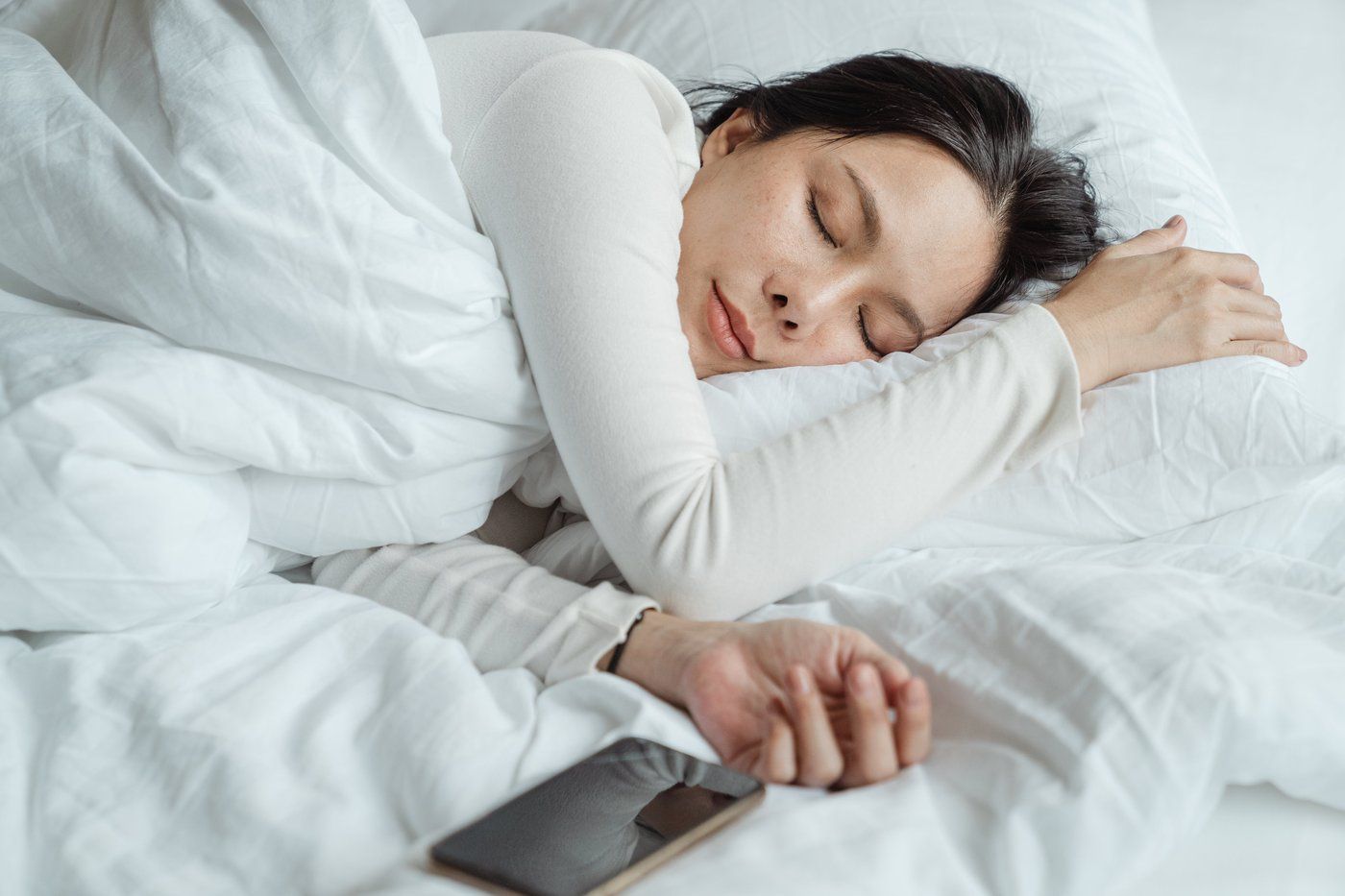Sara loves design and spends late nights on her phone browsing home decor ideas. She is an active member of various WhatsApp groups and enjoys sharing messages, videos and memes. She frequently uses her phone at bedtime to stay connected with family members.
Since his son moved out of home, Ahmed has become quite anxious and frequently wakes up during the night to check his phone. Whenever he receives messages that confirm his son's safety or whereabouts, Ahmed feels calm and is able to go back to sleep without worrying.
Clara uses her mobile phone as her alarm clock and keeps it close to her all night. She doesn't mind having her phone nearby although her husband's snoring is another matter. That keeps her awake and Clara believes it’s affecting her health and job performance. Despite that, Clara is reluctant to sleep separately from her husband.
What Sara, Ahmed and Clara have in common, like many other people, is they habitually use their mobile phones before bedtime, or while in bed. They also share a bed with disruptive sleepers, such as snoring partners, restless children, and even pets.
This urge to stay connected flies in the face of all the expert advice on the importance of sleep, which is well understood.
Research suggests regular phone use in bed can result in inadequate sleep, which is linked to various health problems, such as diabetes, depression, and cardiovascular problems, as well as cognitive decline.
Experts recommend following "sleep hygiene" practices to maintain good sleep habits such as avoiding screens, caffeine, and alcohol before bedtime, keeping a regular schedule, exercising regularly, ensuring the bedroom is dark and quiet, etc. Some experts also advise against sharing a bed with a disruptive sleeper (e.g., due to snoring or frequent tossing and turning).
There are reasons why people ignore this advice.
A recent series of studies based on interviews with everyday Israelis sheds some light on these questions. Although sleepers are often referred to as being "dead to the world", many of them wish to and are even expected to stay connected with the outside world.
Sleep is typically viewed as a time for rest and detachment, enabling people to be free from social commitments and withdraw from the usual responsibilities of daily life.
But sleep does not entail a complete detachment from one's social world, as some social obligations persist and as many wish to sustain bonds even amid unconsciousness.
This means mobile phones not only become a crucial tool for fostering and maintaining social connections, but — and this may sound counter-intuitive — also safeguard sleep during late hours.
Many people use their phones as an alarm clock to wake up on time for work and caregiving duties. They also use their phones to stay connected with the world and communicate with their friends and family. This gives them an opportunity to read articles and updates at their leisure when they are too busy during the day.
Some people keep their phones on overnight with sound or notifications enabled in case someone needs to contact them. Others keep their phones on to receive reassuring messages from their loved ones or children while they are out at night.
This way, they can communicate without fully waking up, which helps protect their sleep. Mobile phones play a crucial role as a lifeline to loved ones, providing comfort and security during times of separation.
At the same time, many people use their phones to relieve stress and fall asleep. The phone provides a distraction from anxious thoughts that keep them awake. Thus, mobile phones provide the opportunity for individuals to both connect and disconnect while sleeping.
The use of mobile phones at night can have both positive and negative effects. While some find that their phones help them relax and transition into sleep, others experience sleep disruption due to ongoing connectivity.
And while being constantly connected may have its benefits, it may eventually undermine the right to disconnect.
The desire to maintain social connections is also the reason many couples insist on co-sleeping despite their partners' disruptive sleep. Research participants believed that sharing a bed with their partner is vital to their relationship.
Participants said it fosters intimacy and helps enhance communication between partners. Sleeping in separate rooms, however, can create a sense of distance between them.
Simultaneously, they recognised that frequent sleep interruptions caused by their partners diminished both their quality of life and the quality of their relationship.
As Clara said: her husband’s snoring was “ruining my life”.
Most considered the bed as the most private space in the house, exclusively allowing partners, children and sometimes pets inside. This co-sleeping practice, they believed, strengthened their bonds.
Sleepers stay connected to the social world in other ways as well.
Sometimes, worries and concerns shaped by their social identity may keep them awake even against their wishes. This may "pull" them into wakefulness.
For instance, those with lower socioeconomic status may worry more about financial issues, which can disrupt their sleep. These people are also more limited in their ability to purchase technologies, such as sleep masks, white noise machines and others, which could help them disengage from the world and improve their sleep.
These studies shed light on the fact that sleep is a time of both attachment and detachment, social engagement and disconnection from the outside world. This paradoxical nature of sleep is one of the reasons why people may yearn for a perfect night's sleep but cannot always achieve it.
Further research could explore sleep not as an individual, private matter, but as a social time that both shapes and is shaped by social relationships and identities.
(The author is senior lecturer in the sociology department at the University of Haifa. This article was originally published under Creative Commons by 360info)

